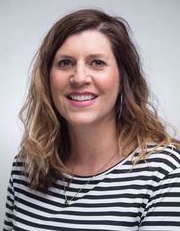If You Can See It, You Can Be It
Diverse Role Models, Tapping New Resources, & Integrating Intercultural Development Across the Health Professions
If You Can See It, You Can Be It: Diverse Role Models, Tapping New Resources, & Integrating Intercultural Development Across the Health Professions
While the push for healthcare workforce diversity is slowly paying off for white women, there are still significant race, ethnicity, economic status, age, and disability gaps across the health professions. The Association of American Medical Colleges (AAMC) reported that 51.6% of medical school applicants were primarily white women in 2018, while the number of Black female medical students decreased. In addition, data indicates that people with disabilities make up between 0.3 and 2.7% of medical school students. Addressing the lack of diverse role models, including those from disadvantaged backgrounds, has been proposed. There are many pipeline programs that focus on recruiting healthcare workforce diversity and provide financial assistance across the country. However, students are unaware of these opportunities and the wide network of “go-to” people are on campus to support them. Lastly, research efforts question “cultural competency” terminology that essentializes entire groups of people into certain characteristics and presumes one can become fully competent in another person’s culture. The specific aims of this project is to embed the “if you can see it, you can be it” philosophy into the academic curriculum and by intentionally enlisting diverse healthcare professionals like African American nurses, Latino doctors, people in dentistry who identify as LGBTQ, to be speakers, host a Next Lives Here: Healthcare Workforce Diversity Symposium, and integrate intercultural development into coursework.

Robin Selzer
Faculty Partner
Associate Professor
Experience Based Learning & Career Education